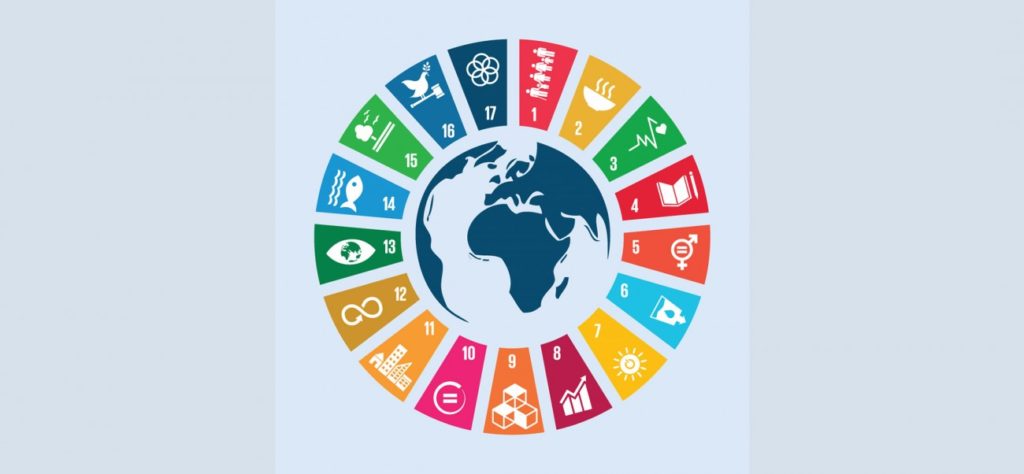According to the United Nations Environment Program (UNEP), the coronavirus pandemic is likely to lead to profound and long-lasting negative effects around the globe. The pandemic exposed and exacerbated social inequalities, indicating that the (few) advances resulting from adopting policies that address problems including poverty, hunger, and public health will likely face a huge setback worldwide – specifically in the vulnerable areas. Furthermore, global environmental threats can similarly undermine the mankind’s capacity to withstand the challenges ahead. Thus, promoting adequate environmental responses, plans and policies is an urgent matter.
In this sense, a sustainable recovery is the best approach to lead the post-COVID-19 world, and the Sustainable Development Goals (SDG) can help lead the way through the hardship of global recovery. In this regard, 4 sustainable development goals are key to address the challenging times ahead.
Climate Action (Goal 13)
The threat posed by global warming can undo gains made so far that addressed issues related to the climate change and its effects and slow down the post-pandemic economic recovery. The policies to meet the challenges presented by climate change must support the plans embracing renewable energy and green technologies. Focusing on the silver lining, the pandemic can be seen as an opportunity to embrace the needed changes, enabling the world to establish the next generation of sustainable and productive infrastructure.
Life on Land (Goal 15)
The degradation of habitats results in more direct animal-human interaction, which facilitated the spread of pathogens between humans and animals, resulting in a diversification of infectious diseases. Zoonoses, diseases that can be transmitted from animals to humans such as COVID-19, will continue to rise if the destruction of natural habitats continues.
Understanding the root cause of zoonotic disease transmission is key to properly inform policymakers on how to protect the human populations exposed to threats that may result from environmental destruction.
Life below water (Goal 14)
To protect the ecosystem below water is as important as protecting life on land, as humans rely on its diversity for coastal protection, medicines, industry, and food. Also, the oceans provide ample marine resources that can be used for therapeutic and pharmaceutical purposes.
This environment suffer from high (and increasing) levels of pollution, warming, and acidification of the ocean. A big part of the waste resulting from industrial production and unconscientious consumption ends up in oceans and other sources of water, which presents a serious environmental concern.
It is likely that the coronavirus crisis will impact the chemical and waste management due to the sudden increase in toxic medical waste, including the single-use plastic waste (e.g. medical gloves and face masks). Thus, supporting policies are important for the protection of ocean and its ecosystems.
Responsible consumption and production (Goal 12)
Lifestyles based on irresponsible consumption lead to unsustainable production, which overloads natural resources and disrupts ecosystems, contributing to perpetuating environmental problems. The unique situation of the pandemic allowed the test of alternative ways to work, study, and consume. Some of the changes have encouraged the emergence of sectors that support responsible consumption, such as remote working or locally-sourced production. This experience proves that it is possible to transition to more responsible consumption and production habits.
Many of the fragilities of our current systems were exposed during this pandemic. However, some responses have also proven that changes can promote positive outcomes. The responsibilities of adopting such positive changes must be extended through the governments, the private sectors, the civil society and individuals, in order to successfully meet the environmental goals. This pandemic is a challenge, but it can also be a real opportunity to meet the urgent demands for changes in lifestyle within the framework of existing policies.
As an example to fight the above-mentioned challenges, UNEP is specifically collaborating with different partners to establish recovery policies and investments to incentivize circularity. In addition, UNEP’s works to enhance an inclusive sustainable consumption driven approach and more sustainable and resilient economies and societies.
Reference
https://www.unenvironment.org/news-and-stories/story/covid-19-four-sustainable-development-goals-help-future-proof-global
Read more
Green economy & COVID-19 recovery
https://www.unenvironment.org/news-and-stories/story/green-economy-covid-19-recovery
Working with the environment to protect people – UNEP’s COVID-19 response
https://wedocs.unep.org/bitstream/handle/20.500.11822/32218/UNEP_COVID.pdf?sequence=1&isAllowed=y
